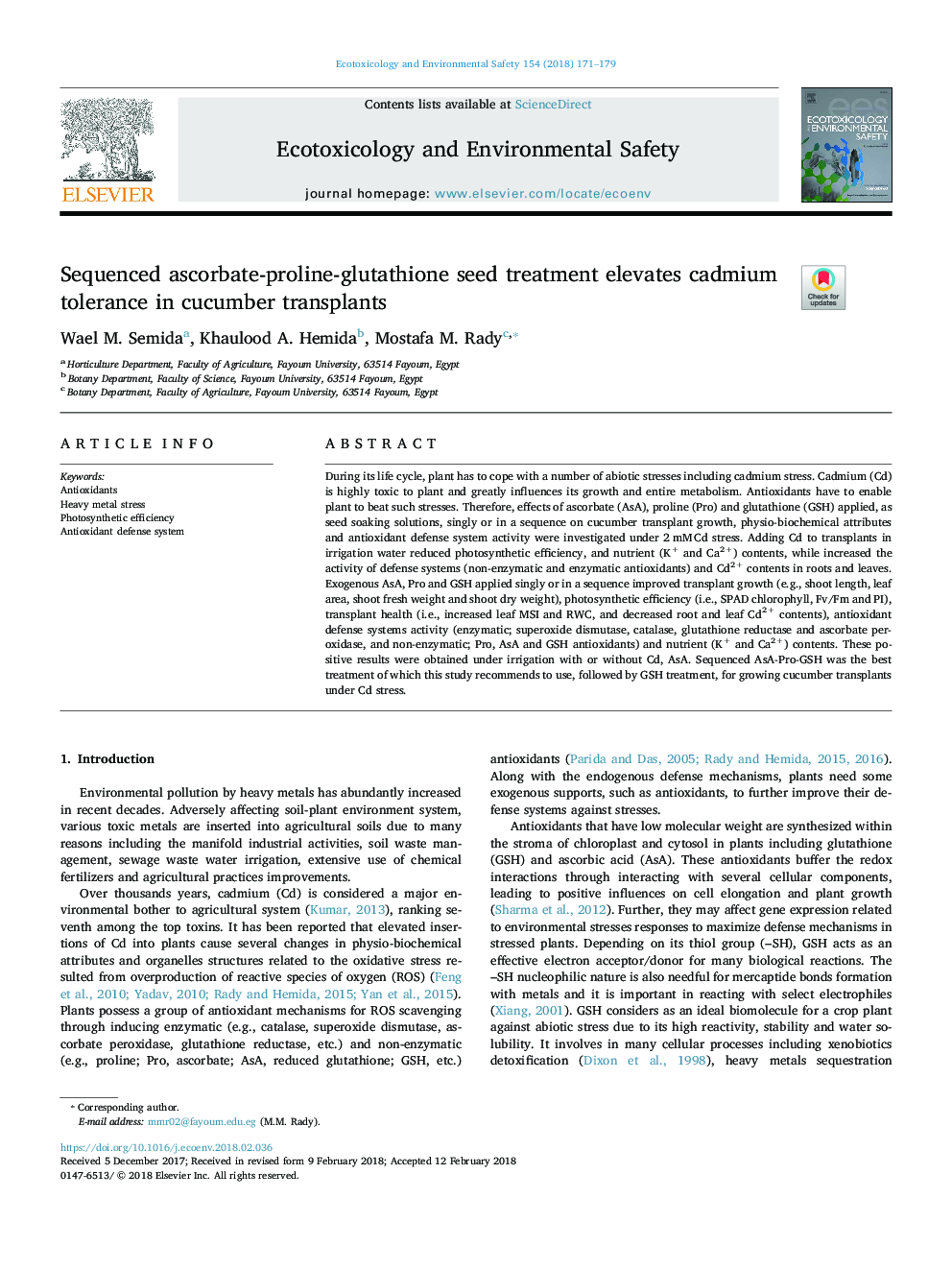| Article ID | Journal | Published Year | Pages | File Type |
|---|---|---|---|---|
| 8854068 | Ecotoxicology and Environmental Safety | 2018 | 9 Pages |
Abstract
During its life cycle, plant has to cope with a number of abiotic stresses including cadmium stress. Cadmium (Cd) is highly toxic to plant and greatly influences its growth and entire metabolism. Antioxidants have to enable plant to beat such stresses. Therefore, effects of ascorbate (AsA), proline (Pro) and glutathione (GSH) applied, as seed soaking solutions, singly or in a sequence on cucumber transplant growth, physio-biochemical attributes and antioxidant defense system activity were investigated under 2â¯mMâ¯Cd stress. Adding Cd to transplants in irrigation water reduced photosynthetic efficiency, and nutrient (K+ and Ca2+) contents, while increased the activity of defense systems (non-enzymatic and enzymatic antioxidants) and Cd2+ contents in roots and leaves. Exogenous AsA, Pro and GSH applied singly or in a sequence improved transplant growth (e.g., shoot length, leaf area, shoot fresh weight and shoot dry weight), photosynthetic efficiency (i.e., SPAD chlorophyll, Fv/Fm and PI), transplant health (i.e., increased leaf MSI and RWC, and decreased root and leaf Cd2+ contents), antioxidant defense systems activity (enzymatic; superoxide dismutase, catalase, glutathione reductase and ascorbate peroxidase, and non-enzymatic; Pro, AsA and GSH antioxidants) and nutrient (K+ and Ca2+) contents. These positive results were obtained under irrigation with or without Cd, AsA. Sequenced AsA-Pro-GSH was the best treatment of which this study recommends to use, followed by GSH treatment, for growing cucumber transplants under Cd stress.
Related Topics
Life Sciences
Environmental Science
Environmental Chemistry
Authors
Wael M. Semida, Khaulood A. Hemida, Mostafa M. Rady,
